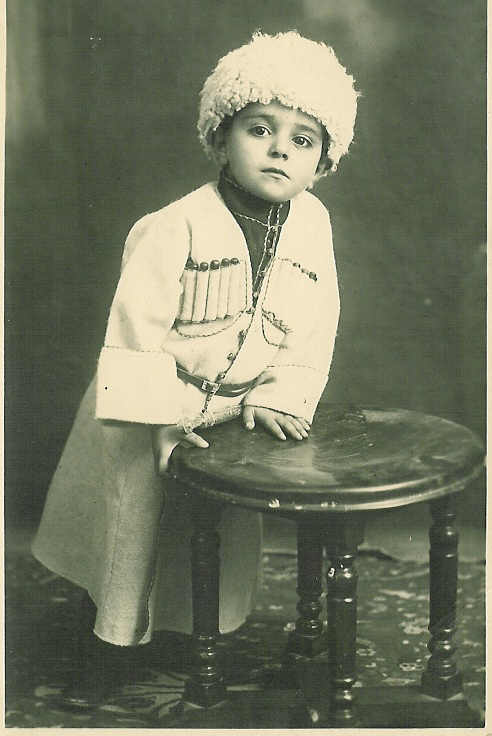|
|
Pan-Turanianism is a racialist movement that not only threatens Iran, but Greece, Armenia, Russia, Ukraine and even (to a more limited extent) China. If unchecked, Pan-Turanianism may become as dangerous to international peace and stability as Islamic fundamentalism has became today. Geopolitics and petroleum diplomacy is using pan-Turanianism to promote a nefarious and self-serving economic agenda (Part VI, items 1-4). Pan-Turanian activists, supported by politically motivated western academic outlets (See Part VI, items 4), are literally re-narrating world history (Parts I & II), and in this quest, have tragically misled many well-intentioned but naïve individuals (Parts III & IV). Many believe in a series of facts, events and a past history that never was. Veracity is falling victim to racialism, especially in the inherent anti-Persian agenda propelled by geopolitical Petroleum diplomacy. Before we undertake this long discussion of pan-Turanianism, we must clearly distinguish between the people, culture and history of the Turkish people in Turkey from pan-Turanian philosophy. Anyone who has traveled to Turkey can attest to the warmth and hospitality of the Turks. The Turks are an ingenious people; one only needs to look at the breathtaking palace of Dulmebahce, built by the distinguished Boyrum family, well steeped in Venetian/Italian, Greek, and Persian architectural styles. Turkish cuisine and culinary arts are legendary and speak for themselves. Turkish martial abilities and military achievements are a fact of history, and their ability, under Mustafa Kemal Attaturk, to reconstitute the dismembered Ottoman Empire into the modern Turkish Republic in the aftermath of the First World War is a noteworthy achievement. The Turkish Republic has been a vibrant democracy since its inception in the 1920s. On a personal level, I have enjoyed deep and rewarding friendships with Turks, whom I have seen to be steadfastly loyal, dependable, straightforward, honest, and caring (many of my friends, as well my sister in law, Suzen, are Turkish). My multilingual grandparents also spoke Turkish, with my grandfather being able to translate Persian books to Turkish and vice versa. Like many Iranians, much of our roots can be traced to the north and west of Iran as well as the Caucasus (see photo of my father Fereydoun/Feridun in Georgian national costume in the late 1920s):
As one of the great peoples of history, the Turks have many mighty achievements to their credit. It is for this reason that, as a great people, Turks have no need to appropriate the achievements of others. At the popular level, a large but unspecified number of Turks (both highly educated and laypeople) have a high regard for Iran as well as Greece, and have no desire for any type of confrontation. Many Turks also wish to heal the historical wounds that have occurred between them and the Armenians - there are many calls for dialogue. It must be made clear once again that the majority of the people of Turkey do not support pan-Turanianism. Pan-Turanianism represents a minority opinion at best. The majority of Turks are disinterested in chauvinistic violence and expansionism. Nevertheless, it is an alarming fact that pan-Turanian activists have made significant inroads among many of Turkey's highly educated scholars, politicians (e.g. the late Turgut Ozal), businessmen, students and laypeople (see Part III). This article is also aimed at the Azerbaijanis of Iran (and other Turkic speaking Iranians such as the Qashqai) as well as the citizens of the Republic of Azerbaijan. There are serious attempts at inciting anti-Iranian sentiments among these peoples. A number of misleading terms and false historical narratives are being circulated among Azerbaijanis (e.g. "North" and "South" Azerbaijan; Azeris are a Turkic race) with the aim of inciting racialist fervour. Many of those who appear to passionately advocate the separatism of Iranian Turcophones are themselves motivated by non-altruistic motives (geopolitical gains, oil, political power, etc) (Parts II-IV, VI). The issue is pan-Turanianism, not Turks as a people, culture or society. What is being critically examined here is the philosophy of pan-Turanianism and its offspring, the racially chauvinistic Grey Wolf movement. It must be made clear that we are equally critical of the futility of other chauvinistic movements such as Nordicist/Neo-Nazi movements, Persian chauvinism, Pan-Arab chauvinism and religious Fundamentalism (Part IV, item 4). |
